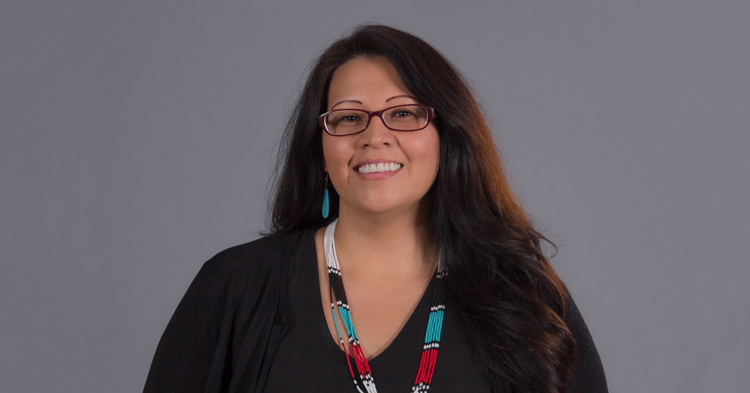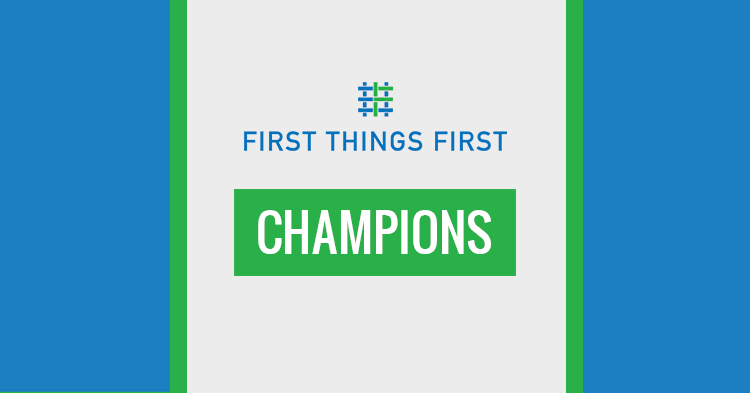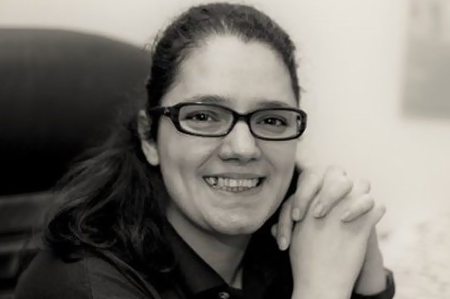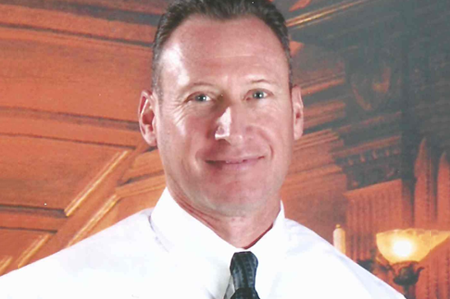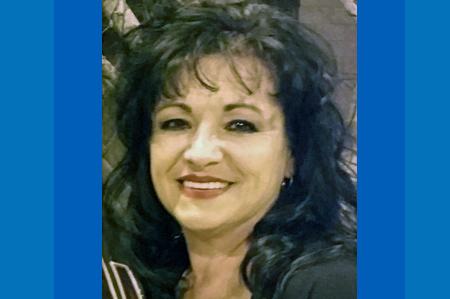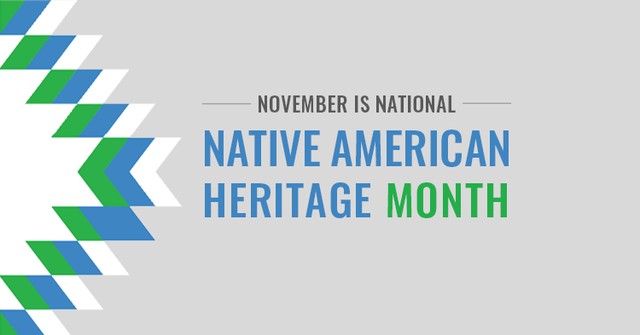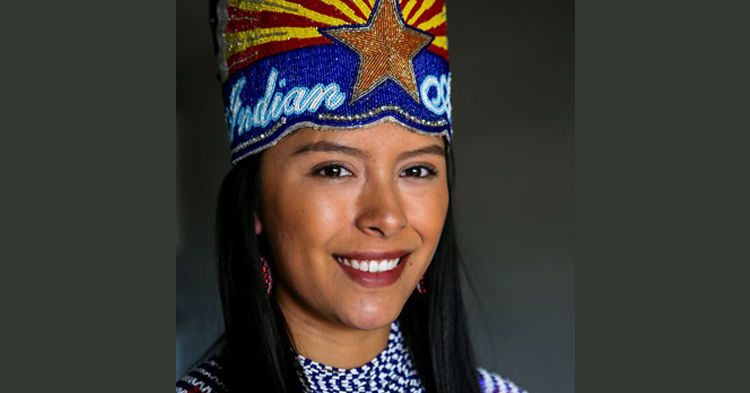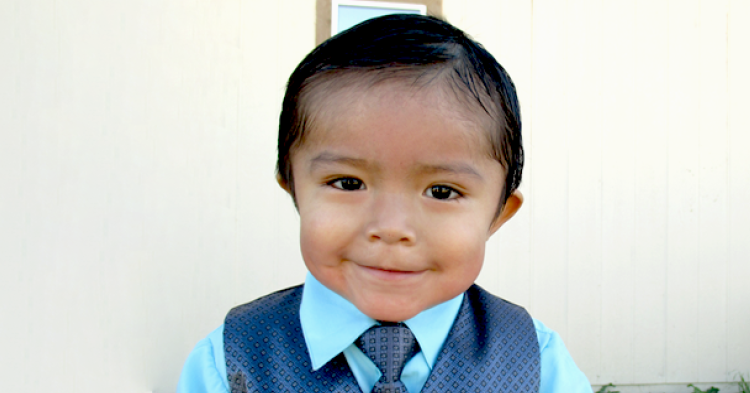
Candida Hunter drives thousands of miles every month in her role as Senior Director for Tribal Affairs for First Things First.
Her work takes her across Arizona, sometimes spanning distances from Navajo Nation in the northeast corner to the far southwest corner where the Cocopah Tribe is located or to the southern border of Arizona to meet with Tohono O’odham Nation or Pascua Yaqui Tribe.
Hunter serves as a link between tribal governments and staff, Indian organizations, the general public and FTF staff. She does this by meeting with officials from 19 federally-recognized tribes to listen and learn from tribal leaders to ensure their perspectives are considered in shaping early childhood polices and programming that affect their communities.
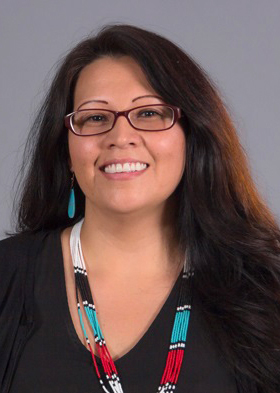
“The goals are to establish an effective government-to-government relationship with tribes and honor sovereignty so we arrive at the best outcomes for our young children,” Hunter said. “FTF’s role is to be a true partner with tribes in meeting common goals. Tribes want the best for their people. They want to see our people healthy and contributing to our communities.”
During her meetings with tribes, Hunter acknowledges that although the majority of the early childhood programs that FTF funds are evidenced-based, they were most likely developed in non-tribal communities.
“It’s important that we recognize that and work with the tribes to make sure programs are meeting the needs of young children and families in tribal communities,” she said.
Nurturing the whole child
Ensuring that Arizona’s youngest kids arrive at kindergarten prepared to succeed requires that the “whole child” be nurtured, which includes supporting the physical, mental, emotional and spiritual well-being of young children, such as:
- Support for families, including home visitation programs for parents with newborns.
- Early language and literacy development, including the preservation of native languages.
- Nutrition assistance and obesity prevention.
- Health screenings and outreach about health insurance.
- Several programs aimed at improving the quality of early education environments, including scholarships to enhance the professional skills of teachers working with the youngest tribal children.
FTF’s work with tribes is rooted in a profound respect for tribal sovereignty. Every two years, tribes have the option to determine how they would like to partner with FTF. Ten tribes have selected to participate as a region within their reservation lands and nine tribes participate as a part of a larger geographical region. FTF’s structure of having local volunteers serve on regional partnership councils also has helped FTF officials to know and better understand tribal communities, Hunter said.
Sometimes, tribal leaders themselves will serve on the FTF regional councils. For example, J. Deal Begay Jr. is the Vice Chair of the Cocopah Tribe and serves as chair of the FTF Cocopah Tribe Regional Council.
“Having that direct connection allows for increased communication and understanding,” Hunter said.
There are other instances where tribal leaders have provided letters of support for FTF projects, including federal grants, and have worked to build awareness of the importance of early childhood among other policymakers.
Hunter said when it comes to working with tribal communities, relationships matter.
“You want to be present,” said Hunter, who was recently named a 2018 winner of the Native American 40 Under 40 award by the National Center for American Indian Enterprise Development. “It’s important that they see you out there in the community. And it’s not just about me building the relationship, but supporting other staff to have those conversations as well, because they are working directly with our tribal communities.”
Establishing trust
For example, FTF Tribal Affairs’ work is focused on partnering closely with FTF regional directors, who are based in tribal communities. Many times in meetings, presentations and other discussions, the regional director and Hunter shares information of FTF work at a statewide level and the regional director can provide specific information about work being done at the regional level.
Much of the Tribal Affairs work at the state level concerns consultation and policy. Hunter, along with FTF Tribal Liaison Jazmin Villavicencio, help to prepare and plan tribal consultations and work with regional directors to obtain tribal approval for data agreements and tribal participation in research studies. This participation is key to determining the impact of FTF-funded programs and services throughout the state.
“Establishing a trusting relationship with tribal officials is valuable, but we always have to aware that they are trusting us to be stewards of their data,” Hunter said. “We must maintain that level of trust and work toward improvement.”
Ensuring best outcomes
Hosting regional tribal consultations also allows for FTF staff to hold in-depth discussions about tribal priorities and learn how FTF can best work with specific tribes to ensure the best outcomes for young children.
For example, these discussions may help FTF to adjust how early childhood information is shared with families, as some messages may not resonate in tribal communities. Hunter gives the example of a commonly used message that every dollar invested in early childhood has a $13 return on investment.
“The talk about capital investment and how investing in your people comes down to the dollar isn’t how we would reference how our people give back or contribute in our tribal communities,” she said.
The conversation sounds different.
“Tribes have their way of describing well-being and giving back to their people and we’ve learned more about each tribe, their priorities and how we should be sharing messages in their communities through regional tribal consultations,” Hunter said. “Which again, shows our commitment to honoring sovereignty and respecting their culture.
“Being able to relate, understand and recognize that each tribal community is unique in their culture, language and laws is helpful in establishing a good relationship and in working effectively with tribes to improve outcomes for young children.”


